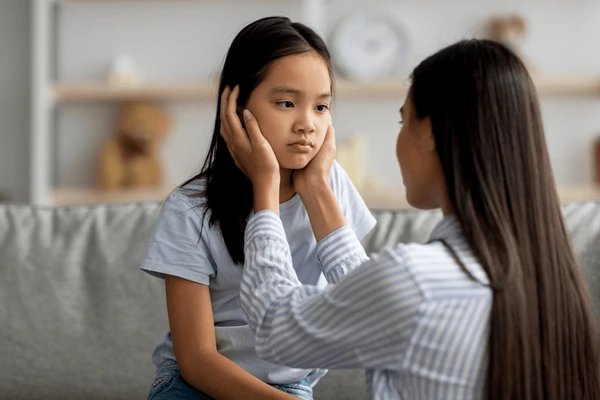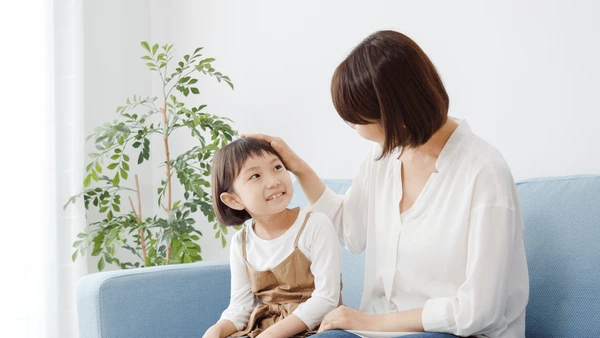When I was growing up, I didn’t just feel caught between two cultures—I felt like I had to choose.
At school, I was “too Asian.”
At home, I wasn’t “Asian enough.” I was the only boy in a family full of girls, the youngest, and the one who was supposed to make it.
My parents weren’t strict in the usual way, but they had unspoken expectations, and disappointment always cut deeper than punishment.

I remember being embarrassed by things I didn’t understand: my parents’ frugality, the way my relatives spoke accented English, the odd looks I’d get for bringing homemade food to school.
It wasn’t until much later that I realized what I was really feeling wasn’t just embarrassment—it was shame. And it wasn’t even mine. It was planted by a world that taught me to hide the parts of me that didn’t “fit.”
Now, as the founder of A Tiger Cub, I meet multicultural families who are navigating the same terrain.
Parents who risked everything to give their kids a better life—and are heartbroken to find their children pulling away from the very roots that made that life possible.
So if you’re reading this and your child seems ashamed of your language, your customs, or your story—this isn’t about failure.
It’s about pain.
And healing that pain starts with understanding where it comes from.
Why Shame Happens in Multicultural Homes
When kids grow up between cultures, they’re often stuck in survival mode. They’re learning to decode two worlds at once—how to belong, how to be liked, how to not stand out too much.
If they live in a place where they’re visibly or culturally different, fitting in often means shrinking themselves.
And unfortunately, sometimes that includes shrinking you—the parent.

It doesn’t mean they don’t love you. It means they’re afraid of being “othered.”
Of being seen as too foreign, too loud, too different. And in a society that still centers whiteness as the default, that fear is real.
For kids from any immigrant or multicultural background—whether Chinese, Nigerian, Dominican, Vietnamese, Jewish, Filipino, Palestinian, or mixed—shame can creep in quietly, disguised as politeness, silence, or distance.
But it doesn’t have to stay that way.
How We Begin to Heal
1. Turn Pain into Story
The most powerful thing I’ve learned is that shame goes away when it’s met with storytelling. You don’t have to give your child a lecture. Tell them your story.
Tell them what it felt like to move here. What you were afraid of. What you hoped for. Why you pack leftovers in reused containers or speak with an accent. These aren’t quirks to be ashamed of but rather living pieces of a legacy.
When kids hear the “why” behind your habits, they begin to see the who. And that’s where empathy begins.
2. Make Culture a Shared Joy, Not a Solo Burden
Invite them to cook with you. Not because it’s “your food,” but because it’s good food. Watch a movie from your culture together. Let them laugh. Let it be light. Let it be beautiful.
Whether it’s Nigerian jollof, Korean dramas, Palestinian embroidery, or speaking Spanish to abuela on the phone, make it theirs, not just yours.
One mom once told me her daughter hated when she spoke in Tagalog at the store. So she taught her how to swear in it, and they laughed. Sometimes pride grows out of play.
3. Give Them Mirrors (and Windows)
Kids need to see people who look like them winning. That’s not just true for Asian kids. It’s true for every child navigating the hyphen between two cultures. Get them books, shows, games, and creators who reflect their identity and help them understand others.
As Grace Lin said in her TED Talk, children’s books should be both mirrors and windows: reflections of who they are, and views into the lives of others.
Some starting points:
- The Paper Menagerie by Ken Liu
- Tigertail on Netflix
- Subtle Asian Traits or Subtle Desi Traits on Facebook
- Local multicultural clubs or youth programs
4. Open the Door to Real Conversations
Sometimes the hardest part is when they push you away. But don’t stop trying. If talking doesn’t work, try writing. If that doesn’t work, share something—an article, a video, a quote—that says what you’re trying to say.
Let them know how their words or actions have made you feel—but say it with vulnerability, not guilt.
Try something like:
“I know we’re different. But when you’re ashamed of me, it feels like you’re ashamed of us. And that hurts. I want to understand what you’re going through, if you’ll let me.”
Be patient. What feels like rejection now might actually be a cry for understanding.
5. Model Pride in Practice
Don’t wait for your child to embrace their heritage—show them what that looks like. Wear the outfit. Speak the language. Bring spring rolls to the cookout anyway. Walk into that school event with confidence.

They’re watching, even when they act like they’re not. You are their blueprint for how to navigate a world that doesn’t always make space for difference.
Final Thoughts from Eric
When I was younger, I didn’t know how to love all the parts of myself. But today, I get to build a platform that helps other families not have to choose between pride and belonging.
If your child is ashamed of your heritage, don’t take it as an indictment of you. Take it as a sign that they are hurting in a world that hasn’t taught them how to love every part of who they are.
Your job isn’t to force them to be proud—it’s to plant the seed, water it gently, and wait.
Because trust me: one day, that same child might start a blog, a podcast, a brand—just to tell the story of how you showed them what love looks like when it’s rooted in culture.
And maybe—just maybe—that story will be theirs too.








